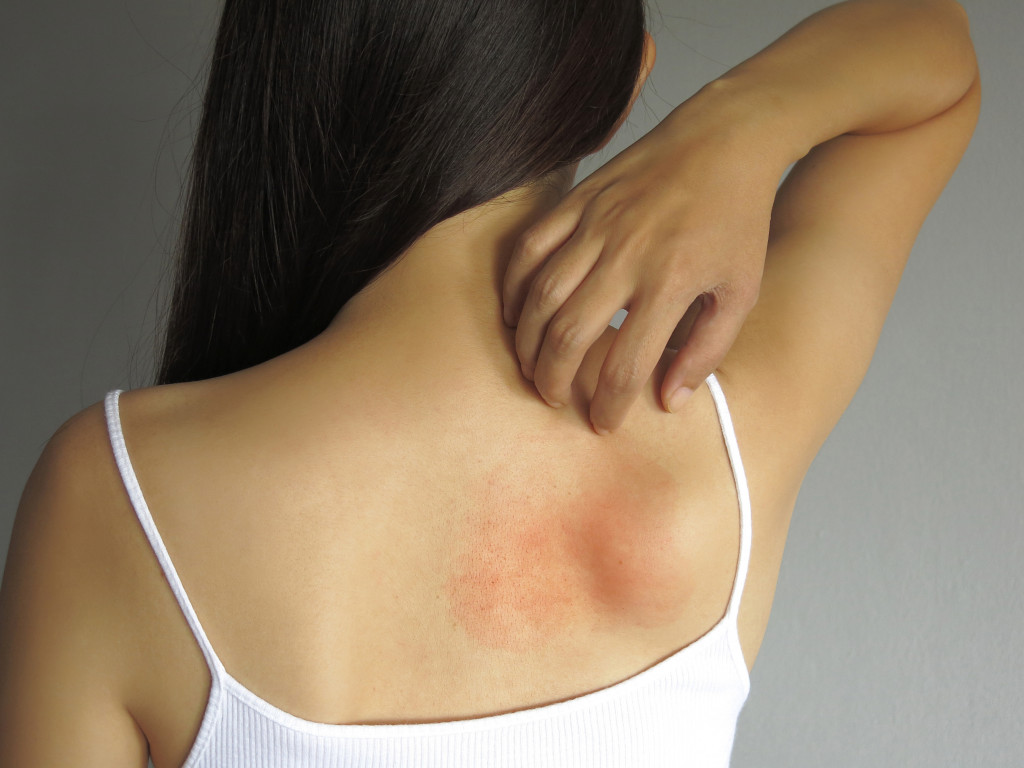A skin rash is any area of irritation or inflammation on the skin. Rashes are commonly itchy, red, and painful. There are many possible skin rash causes, including allergies, infections, autoimmune diseases, and environmental factors.
Apart from the unpleasant symptoms, skin rashes can have a significant impact on quality of life. Some people have to modify their clothing choices, activities, and diets because of skin rash, which can significantly affect their daily lives. Here are six possible causes of skin rash.
Allergic reactions
One of the most common causes of skin rash is an allergic reaction. Allergens can come into contact with the skin through direct contact or exposure to things like pollen, pets, cosmetics, detergents, and latex. Allergic reactions can cause a wide range of symptoms, including itchiness, redness, swelling, and hives.
One of the most common types of allergy is a food allergy. This is when the body’s immune system mistakenly identifies a food as harmful and triggers an inflammatory response. Food allergies can cause skin rash and other symptoms such as nausea, vomiting, abdominal pain, and difficulty breathing. If this is the case, you need to consult a professional to ensure you receive adequate treatment for food allergies.
Infections
Skin rash can also be caused by infections such as bacteria, viruses, or yeast. Common infection-related rashes include impetigo, cellulitis, shingles, and scabies. Infectious rashes usually involve redness, swelling, pain, pus, or other discharge from the affected area. Moreover, they may be accompanied by fever and other general symptoms of illness. If you think an infection may cause your skin rash, seek medical attention immediately to prevent the infectious disease’s spread. Neglecting the appropriate treatment may result in a more severe condition, such as sepsis.
Autoimmune diseases
Autoimmune diseases occur when the body’s immune system attacks healthy cells instead of protecting them from foreign invaders like bacteria and viruses. Common autoimmune diseases that can cause skin rash include psoriasis, eczema, and lupus. Autoimmune disease-related rashes are often itchy and may accompany other symptoms like fatigue and joint pain.
In addition, autoimmune diseases can cause other skin conditions, such as blisters and ulcers. If you experience any of these symptoms, contact your doctor for evaluation and treatment. Failing to do so can cause the disease to progress, resulting in complications.
Environmental factors
Environmental factors that cause skin rash include extreme temperatures (hot or cold), sun exposure, wind exposure, and dry air conditions. These types of rashes are often referred to as “weather rashes” because they’re brought on by environmental changes. Environmental rashes are usually mild and go away within a few days. However, if you have an underlying medical condition like eczema or psoriasis, environmental factors can trigger a flare-up of your condition, which may require medical treatment.
Contact dermatitis

Contact dermatitis is a type of inflammation of the skin that occurs when irritants come into contact with the skin. Common irritants that can cause contact dermatitis include chemicals (like cleaning products), abrasive materials (like sandpaper), plants (like poison ivy), and metals (like nickel). Contact dermatitis usually causes symptoms like itchiness, redness, swelling, and blistering at the site of contact with the irritant.
This condition may require topical creams, ointments, and oral medications to clear up. In addition, if you frequently come into contact with the irritant, you need to change your environment or take preventive measures (like wearing protective gloves) to avoid further skin irritation.
Medications
One of the most common causes of skin rash is medication. Many prescription and over-the-counter drugs can trigger an allergic reaction, resulting in a rash. Medications that are most likely to cause a rash include antibiotics, blood pressure medications, and certain types of cancer drugs. In some cases, the rash may be mild and only cause minor discomfort. However, in other cases, the rash can be severe and lead to serious health complications. If you develop a rash after taking medication, it is vital to seek medical attention immediately. Your doctor will be able to determine whether the medication causes the rash and recommend the best course of treatment.
Final thoughts
Having a skin rash can be bothersome and uncomfortable, so it’s crucial to determine the underlying cause of your rash to receive proper treatment. There are many possible causes for skin rash, and each one requires a different approach for effective treatment. The best thing you can do is consult with your doctor to get an accurate diagnosis and receive the appropriate treatment. While home remedies may offer some relief, they are not always the most effective solution to your rash. Taking preventive and treatment measures right away is key to ensuring a speedy recovery.